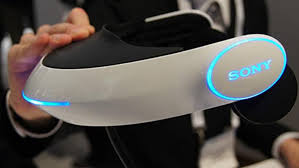By Paul Nicholson in Berlin
September 10 – 95% of Manchester United fans never make it to Old Trafford. virtual reality (VR) technology is now at a tipping point that will mean that they will never need to.
Speaking at the IFA conference in Berlin, Football’s Digital Transformation, Tom Impallomeni, CEO of Virtually Live, said that VR’s “impact will be transformative”. With new camera technology and headsets that enhance audio and touch sensations, fans can now get the stadium experience wherever they are in the world.
“This is an opportunity to engage fans like never before,” said Impallomeni. “VR offers the opportunity to take fans to games and augment the experience.” He also says that the VR experience shows to date that fears that a by-product of the new technology will be fewer people in stadiums is unfounded and actually the reverse is true.
“By giving the experience of the stadium you will drive up the interest (in going to the game),” said Impallomeni.
VR is not new, having been around since the 1980s, but the step change in the technology and the ability to deliver the experience to a new generation of headsets is opening up the opportunity for football.
“There are a lot of advanced headsets like HTC’s Live and Sony’s Morpheus coming on to the market,” said Impallomeni. “The next 6 to 9 months will be a watershed for the VR industry.”
The VR business as a whole is predicted to become a $150 billion industry by 2020.
By activating the long tail fan base with a game experience football is clearly a business that could benefit substantially within this $150 billion of new money.
The big question is ultimately where the rights to matches ultimately sit and how they will impact on the broadcast and sponsors relationships.
“We work with broadcasters and are seeing innovation in that area,” said Impallomeni. “There will be new challenges in virtual rights and how they are packaged but I see it as being augmentative rather cannabilisitic.”
While rights to the top tier leagues like the Premier League and La Liga have so far proved elusive to the rapidly developing VR business, ground is being made with so-called ‘second-tier’ leagues who are taking the opportunity to test the market in the need to bolster revenue opportunities.
Ultimately the groundswell of VR in the consumer market will lead the broadcasters and the rights conversations. Rights holders will clearly have a new revenue wave to ride – it just depends whether they decide to catch that wave early or when it has grown. They don’t want to miss it.
Contact the writer of this story at moc.l1745694047labto1745694047ofdlr1745694047owedi1745694047sni@n1745694047osloh1745694047cin.l1745694047uap1745694047

